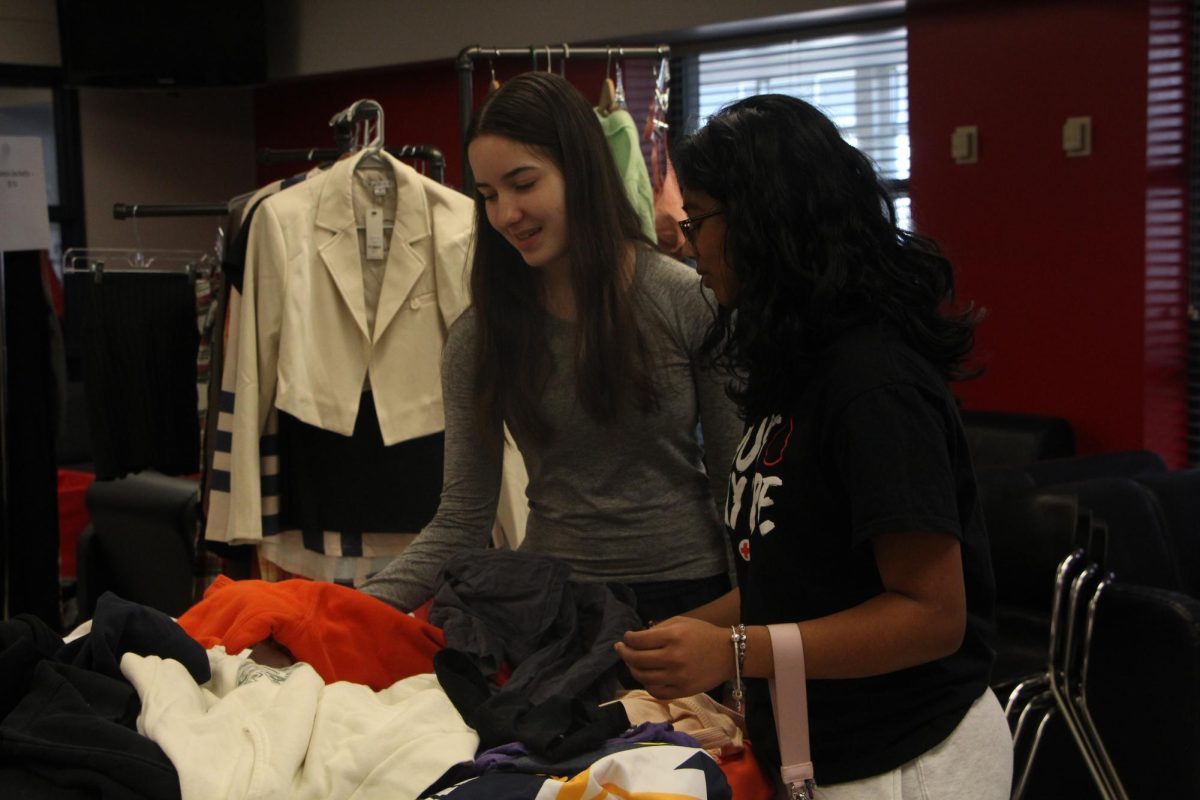
One of the greatest aspects of Niles West is that we have many clubs, and with clubs come fundraisers. Some clubs sell t-shirts, some ask for donated items, and Greek club even makes homemade frappuccinos outside the cafeteria. The most prevalent way to fundraise is through the selling of food, no matter if it’s candy, ethnic food, baked goods, or treats like fruit snacks. However, with the sales of these items come pros and cons.
I personally have sold candy this year for Dance Marathon, tennis, Relay for Life and the NWN. It can grow very taxing and tiring, especially when I have to sell more than one club’s items at a time. And all of this work leads to me consuming candy freely, right? No, summer is coming. I need to refrain, but that’s beside the point. There are far more pressing issues than being tempted to eat what one sells.
One of the most well known groups that sells candy is Dance Marathon. Those who are involved in DM have lately been experiencing candy droughts. The reason for this is that dancers are not turning in money, so therefore DM can’t buy candy to sell. In an email I received in February from senior executive Maria Dekhytar, she stated that dancers would be fined if they didn’t turn in money soon.
Another issue that Dance Marathon faces is the exchange of candy for counterfeit money. A student handed a friend of mine a fake $20 bill. Luckily, she knew the money was fake and went to security, but the student ended up only paying her half the money he owed.
Another issue with selling candy is “pay-backs.” You tell a person who you see every day in class that, yes, they can pay you back within a few days, but it ends up taking a week. Especially for Dance Marathon, this is a hinderance because dancers are expected to turn in money every Wednesday, which means the dancer needs to pay for the student’s candy until the student can pay for his or her own food.
Junior Sophie Sidlowski, who has had to sell numerous food items for Poms, discusses how wishy-washy the task of selling is.
“Sometimes I can sell a lot, but then other days I can only sell two [items],” Sidlowski says.
Selling food is not all bad. Most people sell their treats for $1 each, whereas the vending machines’ products range from $1 to $1.25. Most people love candy, and when students have sports or a late or early lunch, they are ravenous. It’s easier to carry around bags of candy versus flyers to purchase t-shirts or other items of clothing. Plus, I always make the amount of money I need to raise.
Junior Melanie Berman, who sells for band, Dance Marathon, and Relay for Life, agrees that selling candy is better than selling non-food items.
“[Candy selling] is good because it’s something people will buy. Food is better than non-food items,” Berman says.
My parents accept the fact that I’m constantly selling candy for various clubs.
“[Candy selling] has been going on for years. That’s how schools and causes raise money.”
Math teacher and Junior Student Cabinet sponsor Peggy Glaubke says that without the selling of candy, Prom tickets would cost more money.
“Selling candy is our main way of raising funds for Prom all school year. Without these types of fundraisers, the cost for a Prom ticket would be much higher,” Glaubke says.
Overall, I think selling candy or other treats is a good way to sell for a cause, but there are definitely some issues that need to be resolved.

















JulieAnn Villa, Ms. Villa • Apr 5, 2012 at 11:01 AM
Great article Mara! One of my concerns about the numerous candy sales at Niles West is students eating too much candy. Students carrying candy and making it so readily available encourages students to eat candy too often which is really unhealthy. Trying to stay healthy is a challenge when in every class, students and teachers are asked “Do you want to buy some candy?”. Just another point to consider with this issue.
khan • Apr 5, 2012 at 5:53 PM
That is a really good point; I strongly agree with you, Ms.Villa.